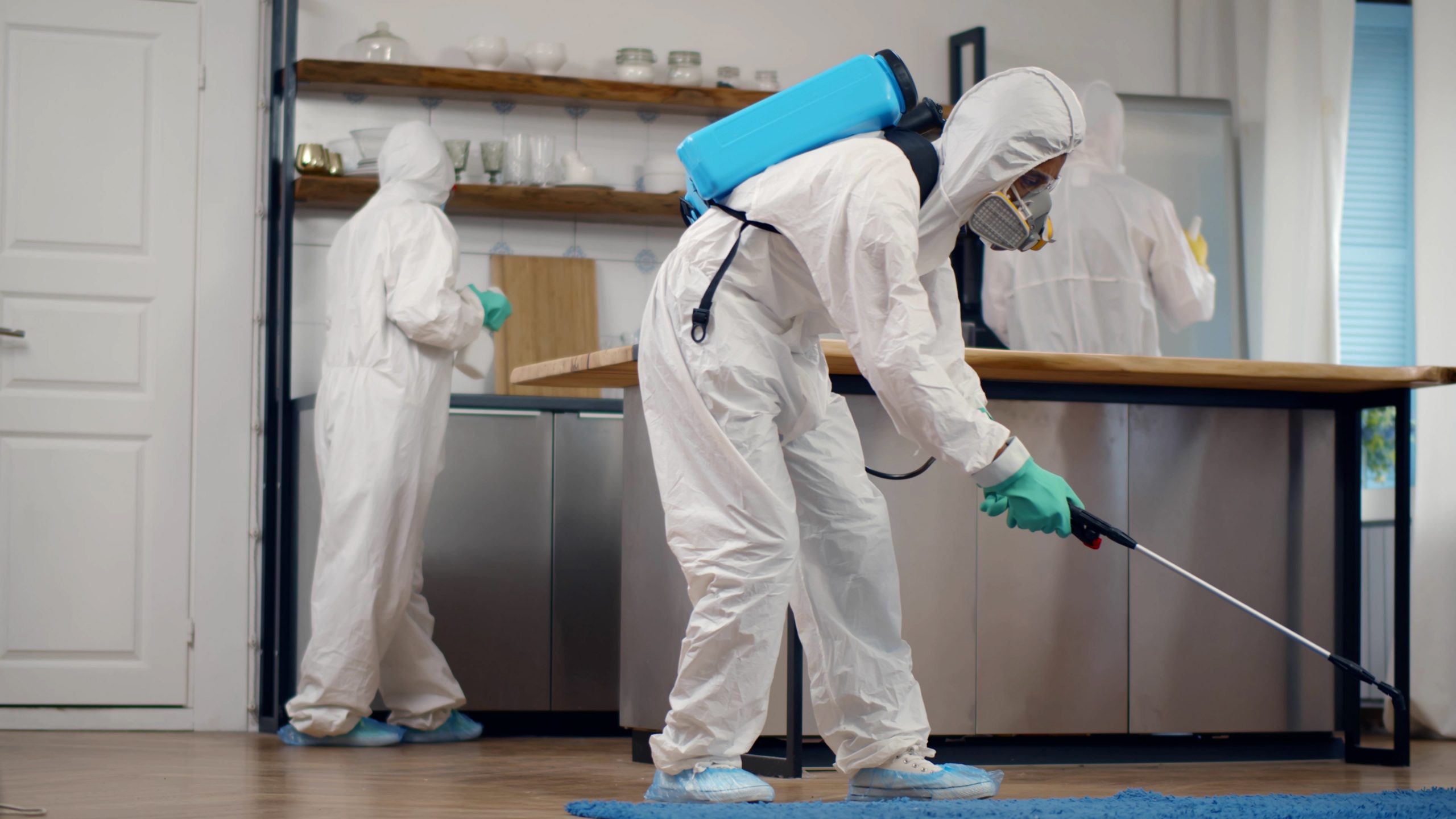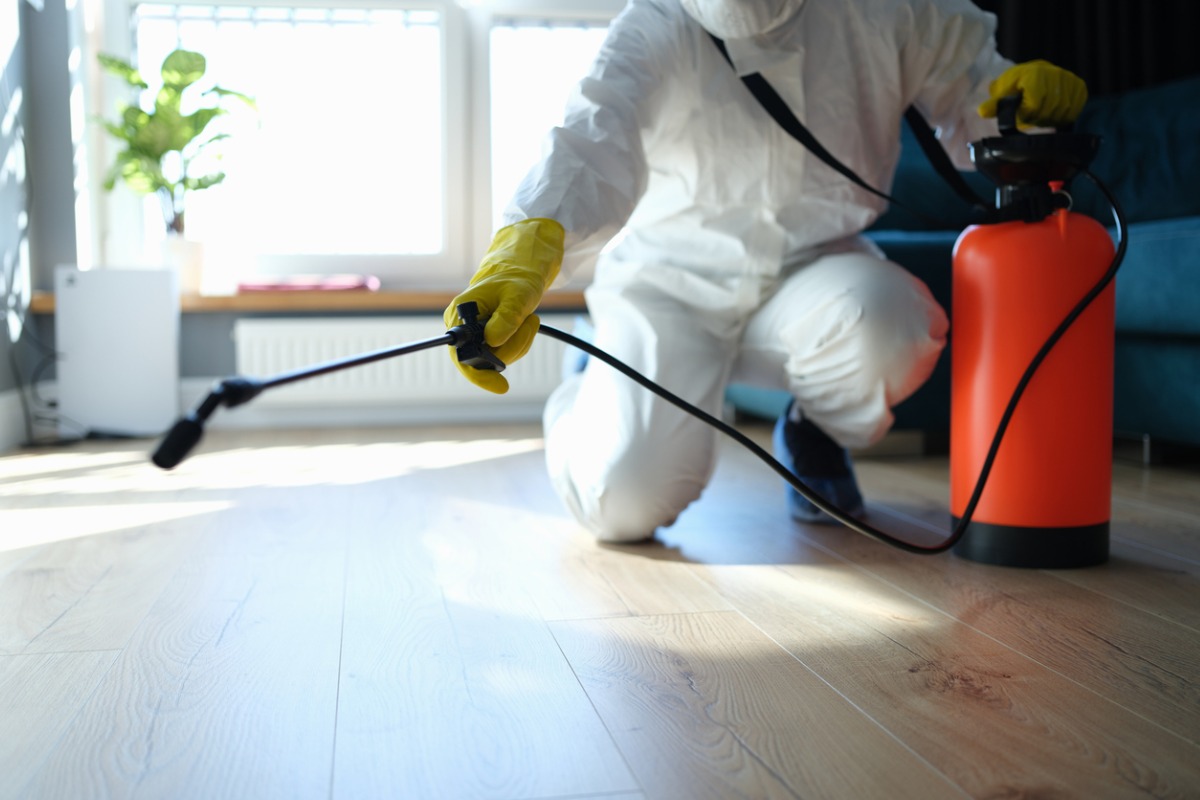Safe and Reliable Pest Control for Lasting Protection
Efficient pest administration calls for a complex method that balances ecological integrity with the need for efficient insect suppression. The nuances of these methods might not be promptly clear, prompting a more detailed evaluation of the methods that can lead to sustainable insect control results.
Understanding Bug Control Methods
Bug control includes a range of techniques intended at managing and removing unwanted pests and rats that can intimidate both health and residential or commercial property. Recognizing these methods is important for efficient insect management.
The main groups of parasite control approaches consist of mechanical, biological, and chemical methods. Mechanical methods involve physical barriers and catches to avoid bug entrance and capture unwanted varieties. Making use of displays on home windows or using sticky traps can significantly lower parasite populaces without introducing damaging compounds - exterminator coquitlam.

Chemical insect control is usually the most recognized technique, using pesticides to eliminate pests. These chemicals can be effective however should be used with care to avoid damaging impacts on non-target types and the atmosphere.
Benefits of Eco-Friendly Solutions
How can green options change bug control practices? The fostering of eco-friendly parasite control methods uses countless advantages, dramatically enhancing the effectiveness and safety of pest administration.

Another advantage is the positive effect on neighborhood biodiversity. Environmentally friendly services are developed to target particular parasites while protecting useful insects and wildlife, advertising a balanced ecological community. This strategy straightens with the expanding customer demand for lasting practices, boosting the credibility of pest control carriers.
Integrated Bug Administration Techniques
The implementation of eco-friendly remedies naturally brings about the adoption of Integrated Parasite Administration (IPM) approaches, which even more boost insect control efficacy. IPM is an all natural technique that integrates numerous techniques to handle pest populaces while reducing ecological effect. This strategy stresses using organic, social, mechanical, and chemical controls, guaranteeing a balanced and sustainable method of bug management.
One essential facet of IPM is the comprehensive evaluation of parasite activity and ecological problems. By keeping an eye on insect populaces and determining their life cycles, practitioners can carry out targeted interventions that interrupt the parasite's habitat or lifecycle, minimizing dependence on chemical pesticides. Furthermore, social methods such as plant turning and habitat manipulation can substantially lessen insect facility and reproduction.
An additional vital component is making use of organic control representatives, such as advantageous insects or microbes, which can normally suppress bug populations. When chemical applications are necessary, IPM focuses on making use of low-risk chemicals and applies them selectively, minimizing direct exposure to non-target microorganisms and humans.
Incorporating IPM techniques not just boosts insect control efficiency but also advertises a more secure ecological community, straightening with the growing demand for sustainable techniques in pest management.
Safe Practices for House Owners
Understanding the relevance of risk-free practices in pest control can encourage property owners to efficiently take care of insect issues while guarding their wellness and the environment. Implementing safe methods and preventive measures is crucial in lessening direct exposure to hazardous chemicals.
Home owners must initially evaluate their environment for problems that attract parasites, such as standing food, water, and clutter waste. Frequently fire ant control cleaning and sealing entrance points can deter pests from invading the home. Utilizing natural deterrents, such as essential oils or diatomaceous planet, can provide reliable options to chemical pesticides.
When chemical treatments are essential, home owners should go with items that are particularly identified as safe for household usage. It is necessary to comply with application standards carefully to prevent too much exposure. Utilizing targeted treatments in areas where pests are recognized, rather than covering splashing, can considerably lower chemical usage.
Last but not least, preserving open communication with pest control specialists is important. Homeowners should ask about the safety of products used and request eco-friendly alternatives whenever possible. By embracing these risk-free methods, homeowners can produce click here for info a much healthier living environment while effectively handling parasite concerns.

Tips for Long-Term Defense
Developing a pest management method that emphasizes lasting security can considerably improve the performance of the safe methods previously gone over. To accomplish this, property owners ought to carry out routine examinations of their building, concentrating on hidden areas such as attics, basements, and crawl rooms. Early discovery of bug task is essential in avoiding invasions from taking hold.
Furthermore, maintaining a clean setting is essential. This includes proper food storage, immediately cleaning spills, and regularly taking care of waste. These practices decrease attractants that attract parasites right into the home. Securing entrance points, such as fractures around windows and doors, can efficiently block potential pest gain access to.
Landscaping ought to additionally be considered; maintaining plants cut and preserving a range between plants and the home lessens concealing spots for parasites. Using all-natural deterrents, such as important oils or diatomaceous earth, can further prevent problems without turning to harsh chemicals.
Finally, teaming up with a professional image source bug control service for periodic evaluations can provide an added layer of safety. These experts can supply tailored recommendations and progressed treatments, guaranteeing that your home continues to be protected versus bugs in the lengthy term.
Verdict
Finally, secure and trustworthy parasite control needs a multifaceted approach that highlights environmentally friendly methods and incorporated insect monitoring. By carrying out natural deterrents, conducting routine examinations, and maintaining correct hygiene, building proprietors can significantly minimize parasite populaces while safeguarding valuable pests and the atmosphere. Partnership with expert pest control solutions enhances the performance of these approaches, ensuring customized remedies that offer long lasting protection and comfort versus future problems.
Effective pest administration calls for a multifaceted strategy that balances ecological stability with the demand for reliable insect reductions. The fostering of environmentally friendly parasite control approaches provides numerous benefits, considerably improving the efficiency and safety and security of pest monitoring.The execution of green remedies naturally leads to the fostering of Integrated Bug Management (IPM) methods, which even more boost insect control effectiveness. exterminator coquitlam. By keeping track of parasite populations and identifying their life cycles, practitioners can carry out targeted treatments that disrupt the pest's environment or lifecycle, reducing reliance on chemical pesticides.In conclusion, reputable and secure pest control calls for a multifaceted strategy that emphasizes environmentally friendly approaches and integrated bug monitoring